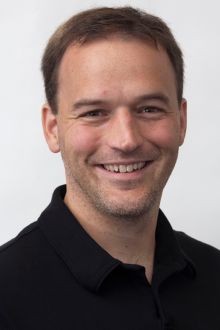To What End?
Prof. Brett Frischmann
(Charles Widger Endowed University Professor in Law, Business and Economics, Villanova University)
Mercoledì 12 luglio 2017 ore 16 in punto
(termine: ore 18)
Centro Nexa su Internet e Società
Politecnico di Torino, Via Boggio 65/a, Torino (1° piano)

Society needs to grapple with the normative implications of 21st century techno-social engineering of humans. And so we must ask the following constitutional questions:
- Who are we?
- What sorts of people do we want to be?
- What values and capabilities do we possess and commit ourselves to sustain?
- What sort of society do we want to build and sustain?
- What obligations do we owe to past, present and future generations, and how should such obligations shape the technological and social institutions—or more broadly, the world—we build and sustain?
The questions are constitutional in the sense that they are the most fundamental intergenerational questions about what constitutes a people, a community, a culture, a society, even a civilization.
We will reflect on these fundamental questions by examining three metaphors. First, we explain why humanity’s techno-social dilemma is in fact a dilemma rather than the utopian heaven promised by smart tech boosters. We explain that the shared resource that’s at risk of deterioration and possibly depletion is nothing less than humanity itself. A world where engineered determinism governs is a world where fully predictable and programmable people perform rather than live their lives. Such a world would, in our view, be most tragic. People within such a world could be described as human; they would still qualify as homo sapiens. But their normative status as human beings would, in our view, be quite thin. Much of what matters about being human would be lost. To help explain why, we revisit the experience machine 1.0 and experience machine n.0 thought experiments.
Biografia:
Brett Frischmann joins Villanova as The Charles Widger Endowed University Professor in Law, Business and Economics, effective August 1, 2017. He is the 2016-2017 Microsoft Visiting Professor of Information and Technology Policy, Princeton University, and a Professor at Cardozo Law School in New York City, an affiliated scholar of the Center for Internet and Society at Stanford Law School, and a trustee for the Nexa Center for Internet & Society, Politecnico di Torino. He teaches courses in intellectual property, Internet law, and technology policy.
Frischmann is a prolific author, whose articles have appeared in numerous leading academic journals. He also has published important books on the relationships between infrastructural resources, governance, commons, and spillovers, including Infrastructure: The Social Value of Shared Resources (Oxford University Press, 2012), Governing Knowledge Commons (Oxford University Press, 2014, with Michael Madison and Katherine Strandburg), and Governing Medical Research Commons (Cambridge University Press, Winter 2016, with Michael Madison and Katherine Strandburg).
At Princeton, Frischmann has worked on his next book, Being Human in the 21st Century: How Social and Technological Tools are Reshaping Humanity (Cambridge 2017), which he is co-authoring with RIT philosopher Evan Selinger. He has examined techno-social engineering of humans, various ‘creep’ phenomena (e.g., boilerplate, nudge, and surveillance creep), and modern techno-driven Taylorism, and he has developed a series of human-focused Turing tests to identify and evaluate when humans behave like machines.








